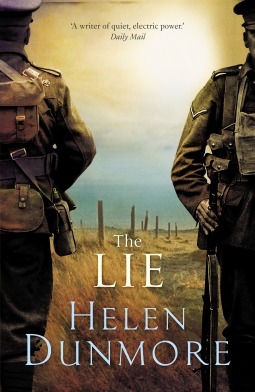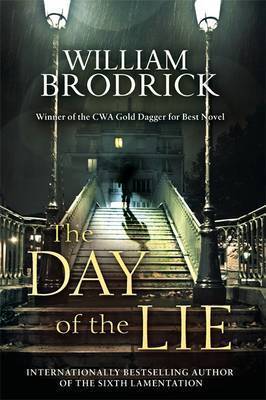
The Lie
Book Description
Secrets linger like ghosts in the mist of a coastal town, threatening to unravel the fragile threads of love and loss. In 'The Lie,' Helen Dunmore weaves a haunting tale of betrayal and redemption, where a woman grapples with the shadows of her past as her life spirals into a web of deception. As she confronts a haunting truth, the lines between memory and reality blur, leading to an impossible choice that could shatter the bonds she holds dear. Can the heart ever truly escape the weight of its darkest truths?
Quick Book Summary
"The Lie" by Helen Dunmore is a poignant tale set in the aftermath of World War I, tracing the emotional journey of Daniel Branwell as he returns to his Cornish coastal hometown haunted by loss, secrets, and guilt. Possessed by memories of the trenches and the death of his dearest friend Frederick, Daniel struggles to reintegrate into civilian life. His attempts to find solace are complicated by his relationship with Felicia, Frederick’s sister, who remains oblivious to the full weight of Daniel's experiences. Haunted by the burden of a devastating secret, Daniel attempts to construct a new life from the ruins of war. As the boundaries between the past and present blur, the truth threatens to surface, forcing Daniel to confront the choices he made and the cost of keeping the truth hidden.
Summary of Key Ideas
Table of Contents
The psychological aftermath of war
Set against the bleak yet beautiful Cornish landscape, "The Lie" unfolds through the perspective of Daniel Branwell, a World War I veteran. Daniel returns to his hometown consumed by trauma and plagued by memories of the front lines and the loss of his childhood friend, Frederick. The coastal setting, with its brooding mists and isolated cottages, echoes Daniel’s internal struggle and the sense of alienation he feels from the world that remained unchanged by the conflict that so deeply altered him.
Memory, guilt, and the power of secrets
As Daniel seeks to rebuild his life, he accepts work caring for an elderly neighbor, while also rekindling a connection with Felicia, Frederick’s bereaved sister. The narrative deftly explores their evolving relationship, highlighting how shared grief can bring solace but also intensify loneliness. The bond between Daniel and Felicia is rooted in their mutual longing for Frederick, but complicated by unspoken feelings, the social constraints of the time, and the secrets Daniel harbors about his wartime experience and Frederick’s fate.
Friendship, love, and betrayal
Memory and guilt permeate Daniel’s daily existence. He is haunted by vivid flashbacks, survivor’s guilt, and the specter of Frederick, whose presence seems almost tangible. As Daniel struggles to suppress his memories, he begins to blur the line between reality and hallucination, leading to unsettling encounters with Frederick’s ghost. The psychological impact of the war and the pressures of silence threaten to overwhelm Daniel, manifesting in both his relationships and his tenuous grip on sanity.
Haunting presence of the past
Deception runs as a central motif, with Daniel’s inability to speak the full truth becoming both a shield and a prison. His lies—by omission and commission—protect him and those he cares for, but they also isolate him further. As Daniel’s internal struggle intensifies, the lies he tells about the past become increasingly unsustainable, forcing him to weigh honesty against compassion and the need for self-preservation. The novel poses difficult questions about the morality of secrets and the price of survival.
Redemption and the search for peace
Ultimately, "The Lie" is a meditation on grief, the enduring scars of war, and the possibility of redemption. Daniel’s journey is both personal and universal, representing the countless soldiers and civilians left adrift in the wake of conflict. The novel’s evocative prose, intense atmosphere, and complex characters culminate in an ambiguous, haunting conclusion that underscores the resilience and fragility of the human spirit. Through Daniel, Dunmore examines whether it is possible to find peace by confronting the truth, or if some wounds can never truly heal.
Download This Summary
Get a free PDF of this summary instantly — no email required.





